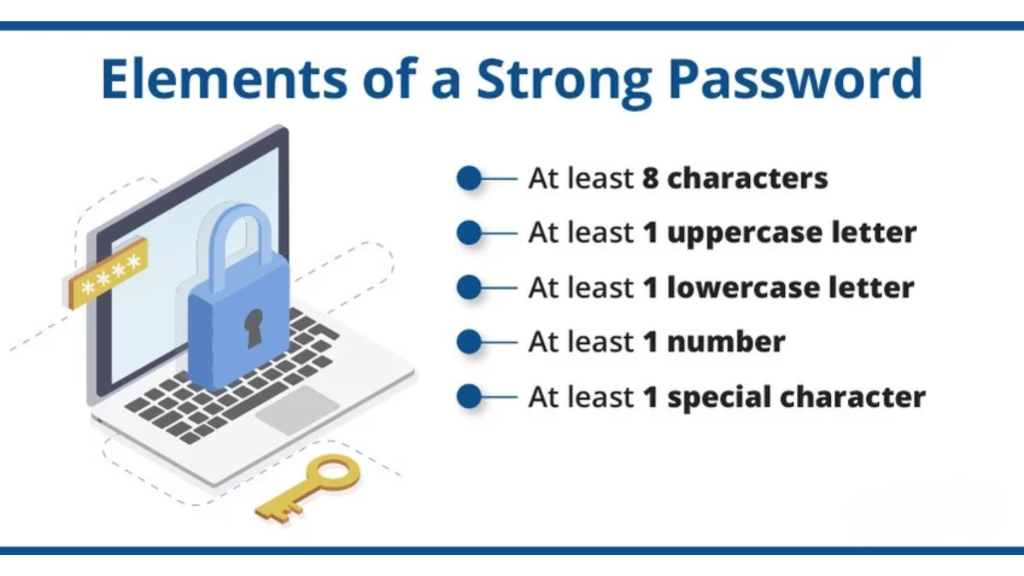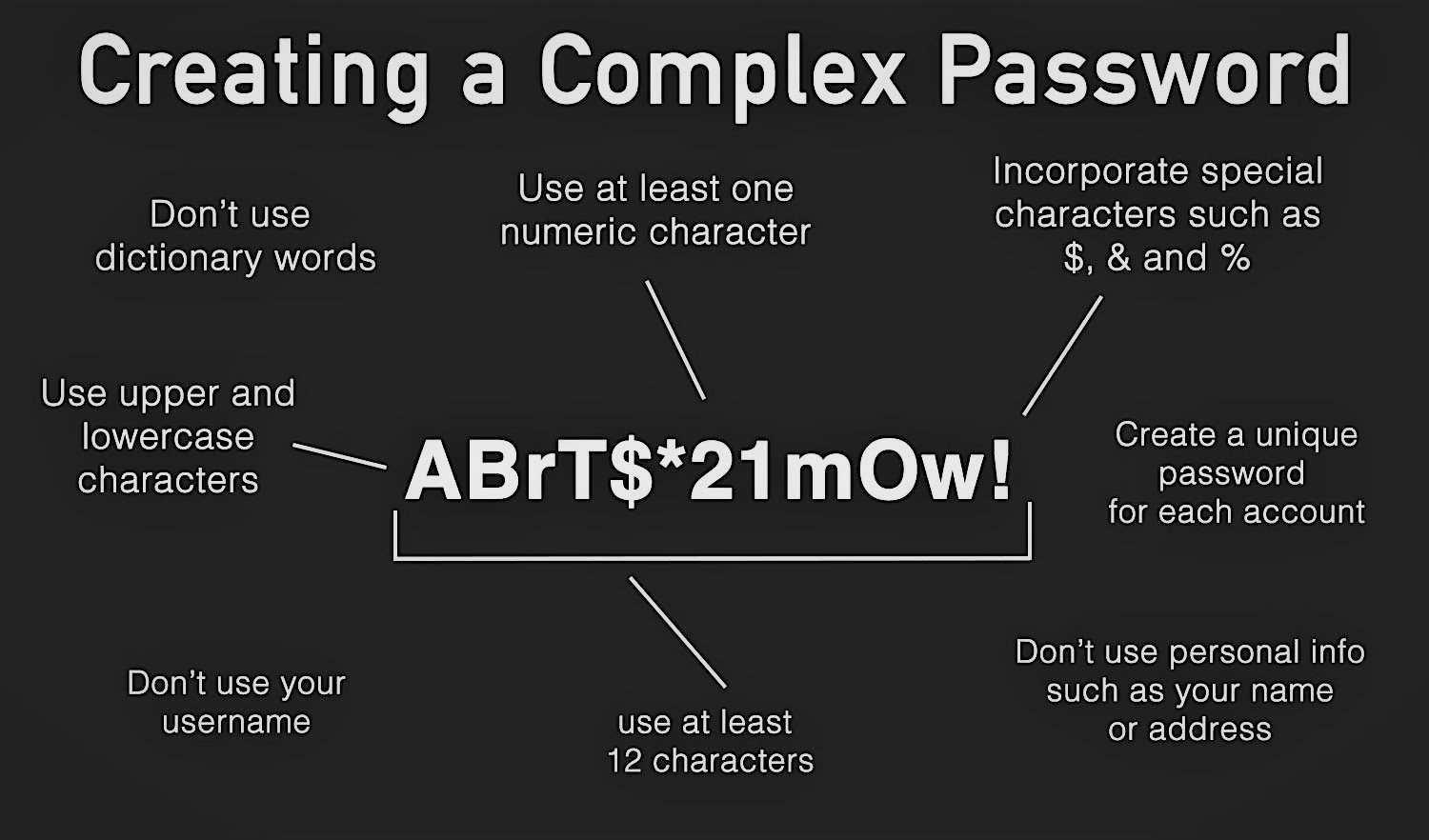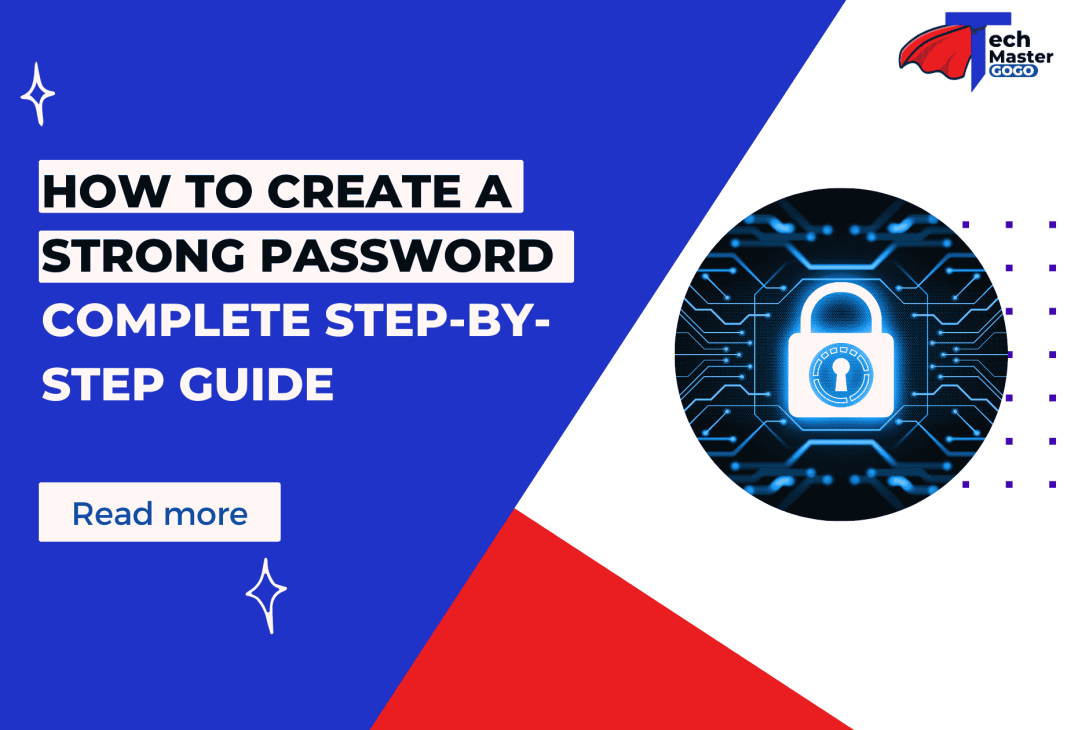Introduction
In today’s digital world, securing your online accounts is more important than ever. Cybercriminals constantly try to steal personal information, and weak passwords are one of the biggest security risks. The stronger your password, the harder it is for hackers to crack it.
However, many people struggle with remembering complex passwords, leading them to use weak or repeated ones across multiple accounts. This guide will show you how to create a strong password while also giving practical tips on how to remember passwords easily without compromising security.
Step 1: What Makes a Strong Password?

A strong password is one that is difficult for hackers to guess. Here are the key characteristics of a secure password:
Strong Password Guidelines:
- At Least 12-16 Characters – Longer passwords are harder to crack.
- A Mix of Uppercase and Lowercase Letters – Prevents easy guessing.
- Includes Numbers and Symbols – Adds complexity (e.g., @, #, $, %).
- Avoids Common Words and Phrases – No “password123” or “qwerty”.
- Does Not Include Personal Information – Avoid using birthdays, names, or pet names.
- Unique for Each Account – Never reuse passwords across different sites.
Common Weak Password Mistakes:
Using “password” or “123456” – These are easily guessed.
Reusing the same password for multiple accounts.
Using dictionary words without modification.
Step 2: How to Create a Strong Password

Here are some techniques to help you generate a strong password that is both secure and easy to remember.
2.1 Use a Passphrase Instead of a Password
A passphrase is a longer combination of random words that is easier to remember but harder to hack.
Example:
Instead of Apple123! (weak), try PurpleDog!Plays2Music (strong).
To make it even better:
Use spaces or symbols: Purple_Dog!_Plays2Music
Mix uppercase and lowercase: puRpLe_DoG!pLaYs2muSiC
2.2 Use the Acronym Method
Turn a sentence into a password.
Example:
Sentence: “My first car was a red Honda in 2012!”
Password: MfCw@rHi2012!
This method ensures your password is long, unique, and easy for you to remember but hard to guess.
2.3 Random Password Generator
You can use password managers or websites to generate secure passwords:
LastPass Password Generator
NordPass Generator
Dashlane Password Generator
These tools create randomized, uncrackable passwords that you don’t need to memorize.
Step 3: How to Remember Passwords Easily

Now that you have strong passwords, the challenge is remembering them! Here are some effective methods:
3.1 Use a Password Manager
Password managers are essential tools for password security, allowing users to store, organize, and automatically fill passwords across different accounts. They eliminate the need to remember multiple complex passwords and reduce the risk of security breaches caused by weak or reused passwords.
A good password manager will:
Generate strong, random passwords
Securely store all your passwords in an encrypted vault
Autofill login details for websites and apps
Sync across multiple devices
Alert you about password breaches
Best Password Managers:
- 1Password – User-friendly with strong encryption.
- LastPass – Free and premium options available.
- Bitwarden – Open-source and budget-friendly.
- Dashlane – Includes dark web monitoring for breaches.
With a password manager, you only need to remember one master password to access all your stored passwords securely.
3.2 Write It Down (Safely!)
If you prefer not to use a password manager:
✔ Write passwords in a notebook stored securely at home.
✔ Never label it “Passwords” or leave it in open view.
✔ Use shorthand or clues instead of the full password.
3.3 Create a Personal Code System
Instead of writing full passwords, use a system only you understand.
Example:
Let’s say you create a base password: Myd0gEats!
Modify it per website:
- Facebook: Myd0gEats!FB2024
- Gmail: Myd0gEats!Gm24
- Amazon: Myd0gEats!Amz24
This way, each password is unique but easy for you to recall.
3.4 Associate It with an Image or Story
Visual memory is strong! Associate your password with an image.
Example:
- Password: Blue$Parrot@Market88
- Memory Trick: Imagine a blue parrot sitting at a market stall with an “88” price tag.
This visualization helps recall passwords easily without needing to write them down.
Step 4: Extra Password Security Tips

4.1 Enable Two-Factor Authentication (2FA)
For extra security, enable 2FA on your accounts. This requires a one-time code from an app (like Google Authenticator or Authy) whenever you log in.
4.2 Regularly Update Your Passwords
Change important passwords every 6 months.
Immediately update passwords if a service reports a data breach.
4.3 Use Unique Passwords for Important Accounts
Banking and email accounts should never share passwords with social media or shopping sites.
4.4 Check If Your Password Has Been Hacked
Use websites like Have I Been Pwned to check if your email or password has been compromised in a data breach.
FAQs
1. How long should my password be?
A strong password should be at least 12-16 characters long. Longer passwords (over 16 characters) provide even better security.
2. What is the best way to create a strong password?
Use a passphrase, acronym method, or a password manager to generate a secure and easy-to-remember password. Avoid using common words or personal details.
3. How can I remember multiple passwords?
Use a password manager to store them securely.
Create a personal code system to customize base passwords.
Write them in a secure place (but not labeled as “passwords”).
4. Is it safe to use the same password for multiple accounts?
No! If one account gets hacked, all accounts using the same password become vulnerable. Always use unique passwords for different accounts.
5. How often should I change my passwords?
It’s recommended to update important passwords every 6 months or immediately if you suspect a breach.
6. Should I use a password manager?
Yes! Password managers securely store all your passwords and can generate strong, random passwords for each account. Popular options include 1Password, LastPass, and Bitwarden.
Conclusion
Creating and remembering strong passwords doesn’t have to be difficult. By using passphrases, password managers, and memory tricks, you can enhance your online security while keeping your passwords manageable.




